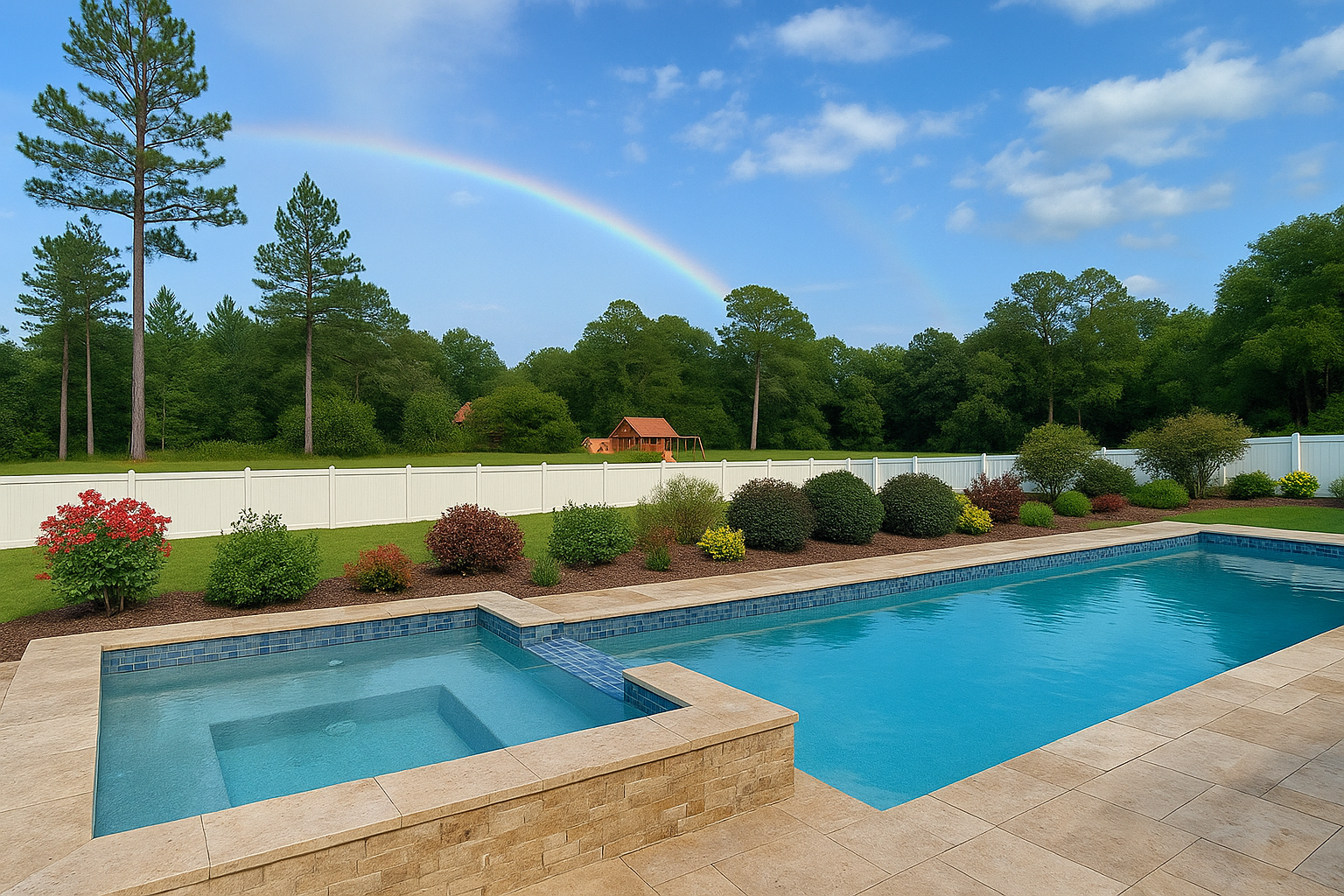When considering an in-ground pool for your backyard, one of the most important factors to consider is the operating costs. While the initial installation cost can be significant, it’s the long-term maintenance and operating costs that can affect your budget for years to come. Among the various types of in-ground pools, fiberglass pools stand out as a cost-effective option, especially when it comes to long-term expenses. In this post, we’ll break down the operating costs associated with fiberglass pools, so you can better understand the financial commitment involved.
1. Energy Costs
One of the main ongoing expenses for any pool is energy consumption. This includes electricity used for pool pumps, heaters, and lighting. Fortunately, fiberglass pools are often more energy-efficient than other types of pools, such as concrete or vinyl, due to their smooth surface. The smooth gel coat of fiberglass pools reduces friction, allowing the pool pump to operate more efficiently. This means lower energy consumption and reduced monthly utility bills.
Tip: Consider installing an energy-efficient pool pump and using a pool cover when the pool is not in use to further reduce energy costs.
2. Water Costs
Fiberglass pools require less water to maintain their water levels compared to concrete or vinyl pools. This is because the surface of fiberglass pools is less porous, which means they are less prone to evaporation. As a result, you’ll need to top up the water in your fiberglass pool less frequently, saving you money on your water bills.
Tip: Installing a pool cover during the off-season can also help minimize evaporation and reduce water usage.
3. Chemicals and Maintenance
Maintaining water quality is crucial for keeping your pool safe and inviting. Fiberglass pools require fewer chemicals to keep the water clean compared to concrete pools, which can absorb chemicals due to their porous surfaces. The smooth surface of fiberglass pools makes it harder for algae to cling to the walls, meaning you’ll spend less on algaecides and cleaning products.
However, you will still need to maintain the pool’s chemical balance, including chlorine, pH levels, and alkalinity. The cost of pool chemicals will vary depending on the size of your pool and your local water conditions.
Tip: Regular cleaning, vacuuming, and balancing of your pool’s chemicals will help prevent costly repairs and maintain water quality.
4. Cleaning and Maintenance Costs
Fiberglass pools generally require less maintenance compared to concrete pools. The smooth surface of fiberglass prevents the buildup of dirt and debris, which means you’ll spend less time scrubbing and more time enjoying your pool. Most fiberglass pool owners find that they only need to clean their pool once a week, reducing both time and costs compared to more labor-intensive pool types.
In addition, fiberglass pools are durable and resistant to cracking and fading, which means you won’t have to deal with resurfacing or expensive repairs as often.
Tip: Invest in a high-quality pool cleaning system to keep your fiberglass pool in top shape, reducing the need for costly manual cleaning.
5. Repairs and Upkeep
Fiberglass pools are known for their durability. Unlike concrete pools, which are prone to cracking and require periodic resurfacing, fiberglass pools are made from strong, flexible materials that can withstand the test of time. This means fewer repairs and lower maintenance costs over the lifespan of the pool.
If any repairs are needed, fiberglass pools are usually cheaper to fix than other types. For example, if your fiberglass pool has a minor crack or chip, it can typically be repaired easily with a patch kit, while concrete pools may require expensive resurfacing.
Tip: Regularly inspect your pool for signs of wear and tear, and address any small issues early on to avoid costly repairs in the future.
Conclusion
In conclusion, fiberglass pools are an excellent choice for homeowners looking to save on long-term operating costs. With lower energy consumption, fewer chemical requirements, and reduced maintenance and repair costs, fiberglass pools offer significant financial benefits over their lifespan. By taking simple steps to maintain your pool, such as using energy-efficient equipment and keeping the water balanced, you can further minimize operating expenses.
HELPFUL LINKS & RESOURCES

